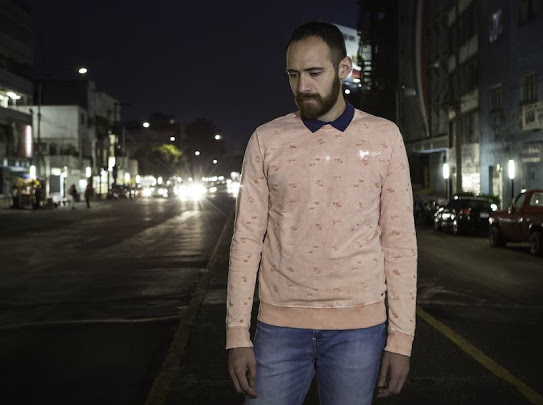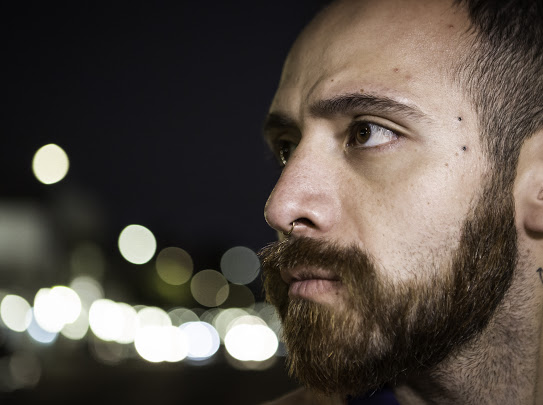In his director’s statement, Singaporean filmmaker Mak Chun Kit notes that discussing the sexual assault of men is a taboo subject virtually everywhere in the world and even the concept of men being sexual violence victims outside a prison setting is often looked upon as a myth.
In One Taxi Ride, he presents the story of Erick, 27, who lives in Mexico City, and how the trauma of being kidnapped and raped by a cab driver and other men on his 17th birthday continues to haunt and paralyze his emotional well-being in terms of every relationship that is part of his life.

It is Mak’s wise use of observational cinema techniques that invite the viewer to engage all of their senses as Erick’s holistic experiences, insights and feelings are rendered on screen before they are ever subjected to abstract, distant concepts or opinions as articulated in texts. One Taxi Ride excels at presenting Erick’s story comprehensively in the embodied complexities of his life and trauma—that is, experience becomes knowledge as well as its reciprocal.
The film is being screened for the Utah Film Center’s 17th annual Damn These Heels Queer Film Festival. It is available for virtual streaming for passholders and individual ticket buyers, only those in Utah, now through July 19.
At 27, Erick has yet to relay the entire set of events from the rape and assault he suffered on his birthday 10 years prior when he went to a gay bar in Mexico City’s Zona Rosa district. He’s developed an emotional barrier where he is aloof, reticent, indifferent, rarely happy and hesitant to show any intimacy. There are moments of anger but more often those moments are sadness.
There are many difficulties in Erick’s life. He runs a small café with his mother, who is divorced from an uncaring father who apparently prioritizes material concerns over unconditional love. The father kicked everyone out of his household, including his mother and siblings. Erick indicates that he can never forgive his father for abandoning them. They are struggling to make ends meet. One day, the café is robbed by a thief that obviously had been watching the business. Erick loses a new cellphone that he had just purchased the day before.
At first glimpse, Erick welcomes a new relationship with a boyfriend who introduces him to his mother and family. The boyfriend’s mother approves of Erick and tells him that she is confident about his willingness to protect her son’s interests. Of course, no knows about Erick’s own pain or story. When the boyfriend tries to crack through Erick’s aloofness, Erick rebuffs any attempts until a walk in a park one day when he tells his boyfriend the details of the rape incident. His boyfriend responds sympathetically but one can sense that he is not capable of the full sense of empathy that Erick really needs. The boyfriend’s concerns prioritize the need to be completely open and transparent with each other: keep no secrets.
Later, when Erick tells him that he also is HIV positive, he learns that his boyfriend already knew because he snooped into Erick’s belongings, including his medication. A few moments later, a title card indicates that the couple broke up after Erick discovered his boyfriend had been checking his phone and messages. Viewers also learn that a subsequent relationship with someone he met online lasted three months.

Mak uses a mix of low-angle and closeup shots, which foreshadow some of the film’s most significant moments. Mexico City is seen in distorted, filtered light, for example, evoking a bleak, gloomy urban landscape. An especially important scene recalls when Erick posed nude for an artwork that was featured in a 2016 gallery exhibition Yuxtaposición Urbana by Héctor López. The painting features Erick blindfolded, his wrists bound with rope while holding a Mexican flag. López’s wholly empathetic talk with Erick about his own experiences with abuse as a child tees up a brilliant example of the power in Mak’s handling of observational cinema. When Erick later tells the whole story of his attack to his family, this particular scene with López naturally connects the threads of Erick’s discovery of an epiphany that leads toward meaningful healing.
The film already has enjoyed a solid well-deserved festival response and the coda ensures that Erick’s story ends on a hopeful, encouraging note. His family members participate in post-screening talkbacks and the environment of loving support offers an important source of healing. And, as Mak states in his artistic statement, “But it is also that we live in a world where he didn’t feel like he had any options available to deal with the violent attack. His decision to keep it a secret for 10 years reflects how society has failed countless individuals like him.” Indeed, the visuals of Erick’s story allows the viewer to enrich a conversation that should be as fertile as possible so that no victims of sexual violence should ever have to suffer in silence.
